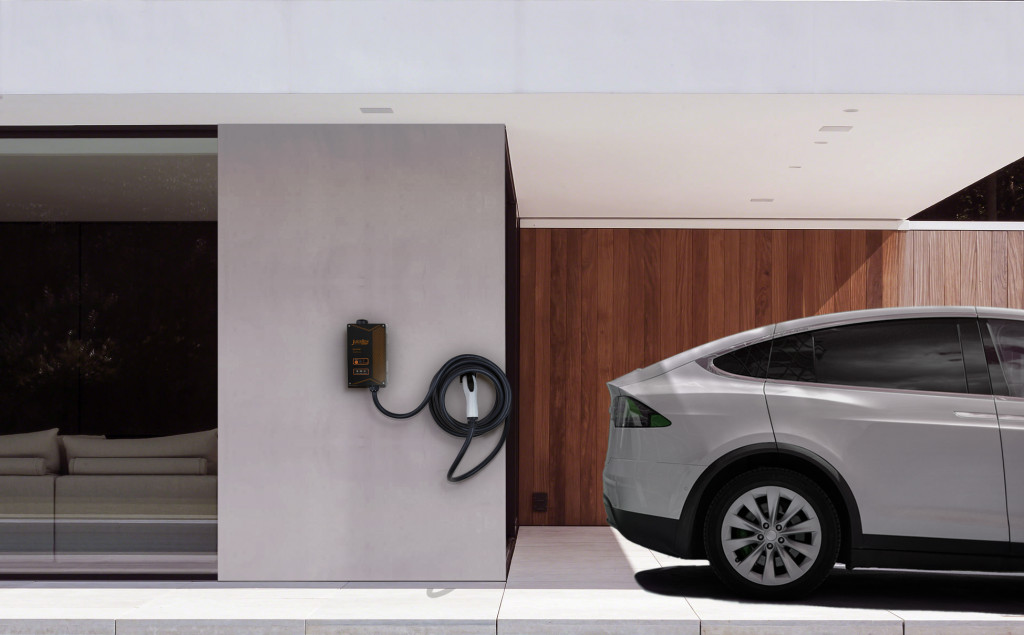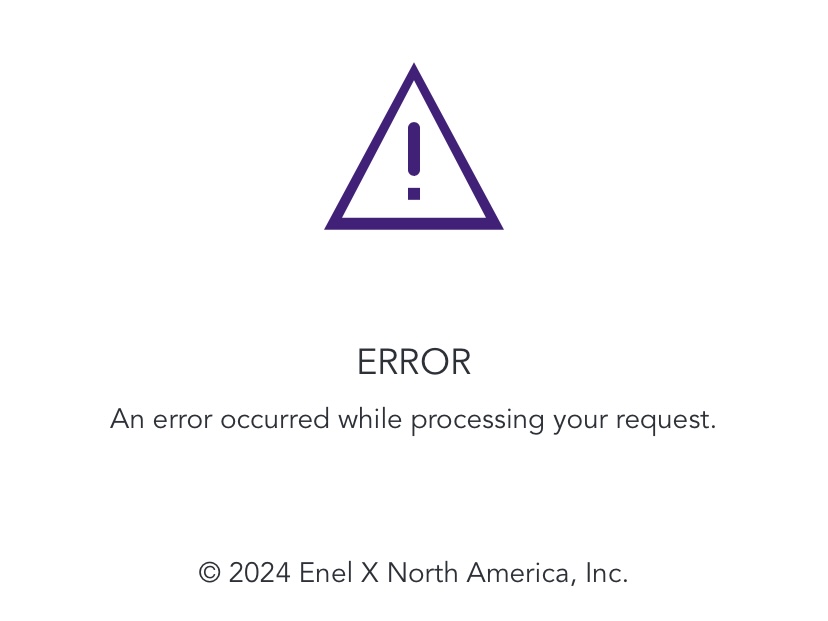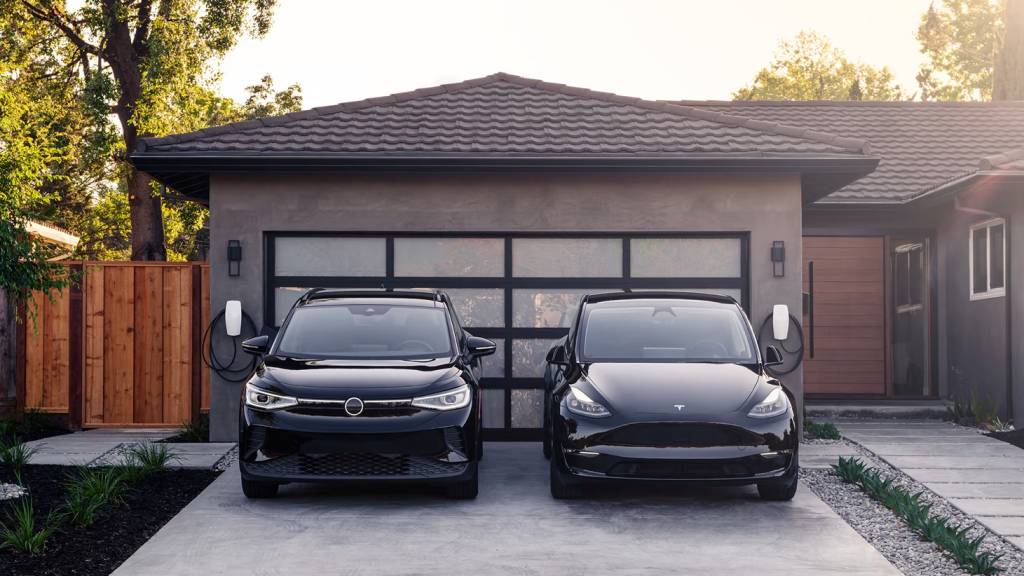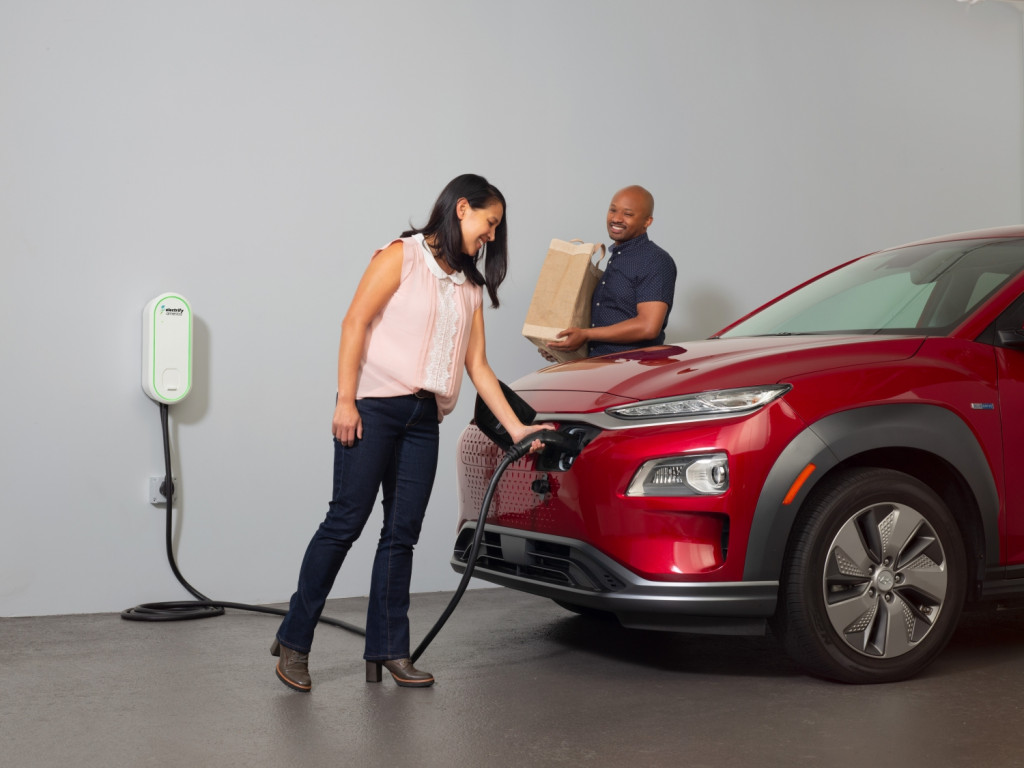- Enel X abruptly left the U.S. market with no preliminary plan for JuiceBox assist, performance
- JuiceBox line is among the many most prevalent U.S. residence good EV chargers
- Prompted a letter to the FTC, alarm about linked units counting on firm servers
For those who’ve come to depend on good EV charging as a part of your every day routine, and you’ve got one of the crucial widespread good chargers within the U.S., you would possibly quickly must provide you with an old-tech backup plan.
Earlier this month, the EV charger supplier Enel X despatched out a message to U.S. customers of its good chargers—together with the JuiceBox line—basically stating that in 9 days it was pulling the plug on its charger enterprise within the U.S.
That probably meant the finish of ongoing assist of its good chargers, which require Enel’s servers to operate. So its “good” chargers, which shoppers had paid a premium for, would possibly basically develop into “dumb” chargers, reverting to base settings. Which may retain their performance as chargers, however render them unusable for all of the smart-and-connected causes consumers selected them. They’d not be capable of provoke charging by way of a smartphone, even at residence, or monitor a charging session on the app, as these issues rely on the corporate’s servers.
The transfer despatched shockwaves throughout the EV sector, and it begged some essential questions that haven’t but been addressed past the small print customers possible disregarded within the app settlement. How lengthy are firms that make good, linked units liable for supporting them? What occurs when one thing as substantial and important for every day transportation, like an EV charger—one which’s been top-rated by consultants for years, and broadly supported by automakers and charging packages—is immediately “bricked” on account of lack of assist of the model behind it?

eMotorWerks JuiceBox wall mount charging Tesla Mannequin X
“Bricked” merchandise and an absence of shopper safety
Earlier than the JuiceBox fiasco, the difficulty had already began constructing steam with a targeted effort in Washington, D.C. Final month a set of shopper teams representing right-to-repair, financial justice, and environmental pursuits took on this concept of units which can be depending on the producer’s personal software program and servers with a letter to the U.S. Federal Commerce Fee (FTC).
The examples then had been principally the merchandise of a collection of failed startups, together with a linked bassinet, a sous vide cooker, a juicer, and a wise plug, Amazon’s Halo wearables and Google’s Dropcam cameras had been talked about as merchandise that had been “bricked” by an unusually quick assist window.
However now, with Enel’s swift transfer to go away the market, there’s already one other particularly evident instance—one which will have been put in with a four-figure electrician’s invoice and maybe with public incentives.
Likewise, JuiceBox good chargers, which retail for $600 to $1,600, aren’t the present product of a small startup however an enormous multinational firm. The bulletins come from Enel X Manner USA LLC, a unit of the Italy-based vitality big Enel, which was the 59th largest firm on the earth, in response to the Fortune International 500.
A discover from Liquid Asset Companions—the place Enel sends customers of the JuiceBox, as of Thursday—specifies that there are about 120,000 residential clients (principally JuiceBox chargers), 25,000 industrial clients, and 17,000 further JuiceBox chargers, all of which want a brand new software-as-a-service settlement, which is listed as an “alternative.”
On Thursday Shopper Stories and U.S. PIRG, which had been two of the authors behind the sooner FTC letter, plus 60 homeowners of JuiceBox chargers pushed the matter, formally asking the FTC “to analyze the conduct of Enel X.”

Enel app error message – Oct. 11, 2024
After FTC letter, assist for “an prolonged interval”
Then later Thursday, Enel gave homeowners some assurance that chargers gained’t be instantly bricked (observe that as of Friday, GCR noticed the opposite, above). However their future stays unsure.
“Enel X Manner USA continues to interact with a third-party agency to handle the closure of the enterprise on October 11, 2024,” acknowledged Enel X Manner in an e-mail replace that went out to registered customers (this correspondent included) on Oct. 10. “After additional technical analysis, the agency has entered into an settlement with the present supplier to proceed to function the EV charging software program within the US and Canada for an prolonged interval.”
The corporate as soon as once more left no clear concept of what that assist window is, however it seems that homeowners will retain their connected-charger performance for some variety of weeks past Oct. 11.
Inexperienced Automotive Stories has reached out to Enel for clarification on how lengthy full performance is anticipated to final, as soon as obvious server points on the time of writing are labored out. In its Thursday night alert to homeowners, Enel stated that it might proceed “to function the EV charging software program within the US and Canada for an prolonged interval,” but it surely referred to as the transfer an “interim resolution.”
“Whereas JuiceBox merchandise will proceed to function with software program connectivity after October 11, 2024, customer support is not going to be accessible throughout this interim interval,” the corporate added as a part of that Thursday assertion, laying out {that a} third-party agency will handle claims and communication after Oct. 11.

eMotorwerks JuiceBox Professional 40 networked residence EVSE electric-car charging station

eMotorwerks JuiceBox Professional 40 networked residence EVSE electric-car charging station
Not a no-name EV charger; among the many best-rated and commonest
The unique JuiceBox EV chargers had been among the many front-runners of EV smart-charging, and earlier on it was the best way to get a stage of connectedness, knowledge entry, and value that rivaled Tesla’s well-regarded wallboxes. Due to its touted interoperability and—beforehand—its initially well-updated smartphone app, the JuiceBox has been utilized by numerous time-of-use charging packages, and by companies seeking to monitor and log their vitality use.
Enel purchased the unique creator of JuiceBox chargers, California’s eMotorWerks, in 2017. The chargers received a brand new, extra trendy bodily look in 2020, however the interface and capabilities basically carried over. Since then, performance has waned as the corporate has switched to a number of totally different app variations and techniques, leaving homeowners with a slower-reacting and fewer succesful app than what they beforehand had.
However the timing for Enel X’s exit additionally seems suspect. The NHTSA revealed, in paperwork filed only a day after the corporate’s authentic announcement it was leaving the U.S. market, that it was investigating JuiceBox residential chargers over experiences of “electrical arcing and thermal occasions,” citing six confirmed incidents together with two fires.
It may get difficult on so many ranges. As EV charging professional and GCR contributor Tom Moloughney, in his most up-to-date State of Cost podcast (under), factors out, Enel X might have extra industrial Degree 2 chargers out in use within the North American market than anybody besides ChargePoint.
As Chargelab CEO Michael Bakumin factors out within the podcast, which you would possibly need to watch should you personal one in all these items, most residential and industrial chargers from Enel X have a proprietary foundation and aren’t actually utilizing the Open Cost Level Protocol (OCPP). That is the “open supply” language for chargers, which might in any other case enable a charger to be simply reconfigured for brand spanking new networks and interfaces. Whereas Chargelab has been in a position to migrate the industrial chargers, if Enel pulls all assist it isn’t even sensible to get them again on-line in each case. As an illustration, it might take 15-Half-hour per charger to make the modifications—which means an house constructing with 20 L2 Chargers would face a complete day of expert labor charges.
It’s additionally too difficult of a process to do with residential chargers, so the perfect hope stays a continued software program settlement—and given the dearth of a timeframe with Friday’s announcement, we’re not there but.

Tesla Common Wall Connector
Numerous questions on EVs’ dependence on networks, cloud
The underside line right here is that the enterprise is altering. Almost all main automakers at the moment are providing their very own smart-charging and home-energy {hardware}, or a most popular smart-charging model appropriate with their model app.
A good charger could also be pointless with many EVs you possibly can merely set charging occasions and energy ranges by way of the EV itself—and which will finally be higher than relying on community servers or knowledge from the cloud.
It additionally might beg the query whether or not Enel owes the U.S. authorities (or states) cash for slicing its assist window so quick, as many of those chargers had been purchased partly with public subsidies, or had been a part of public initiatives.
The September FTC letter summed that “generally, shoppers find yourself with a hunk of e-waste that might nonetheless operate with the suitable software program, and a way of disappointment.”
These events requested for a assured minimal assist time for linked merchandise, a assure that the product will nonetheless work if the web connection or updates stop, strategies of reuse if assist ends, instruments that assist interoperability, and an effort to construct extra longevity into merchandise.

Electrify America Electrical Car Residence Charger
In fact, this doesn’t begin to handle points with cybersecurity, or whether or not or not a failure to assist good chargers will make them extra susceptible to hackers.
In the meantime, looking for to handle a variety of such issues with safety, accessibility, and performance over the long run, a bunch of householders referred to as Juice Rescue seeks to get the corporate to launch its supply code for the chargers
And within the meantime, this stands as a disheartening blow to good charging and all the benefits it might deliver. Because the Division of Vitality has identified, it’s tech that smoothes out demand on the grid, makes driving an EV even greener and, normally, makes life with EVs simpler.
To sum, programming your EV charging habits on your utility’s peak and off-peak charges is nice, however rethink how cloud-connected your charging must be—even when it’s time-of-use charging. And maybe most significantly, search for good charging {hardware} that’s OCPP-compliant, which assures that it may nonetheless be absolutely usable sooner or later if the corporate fails or the assist window ends.

